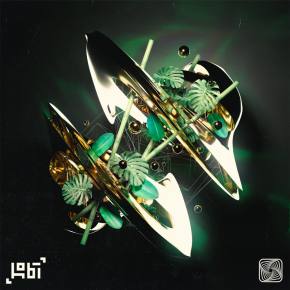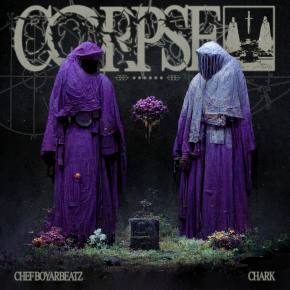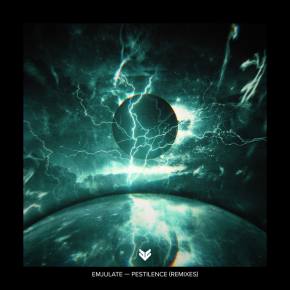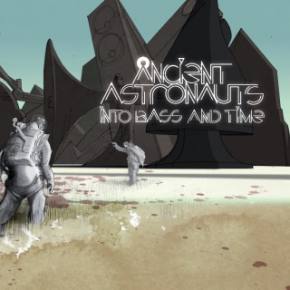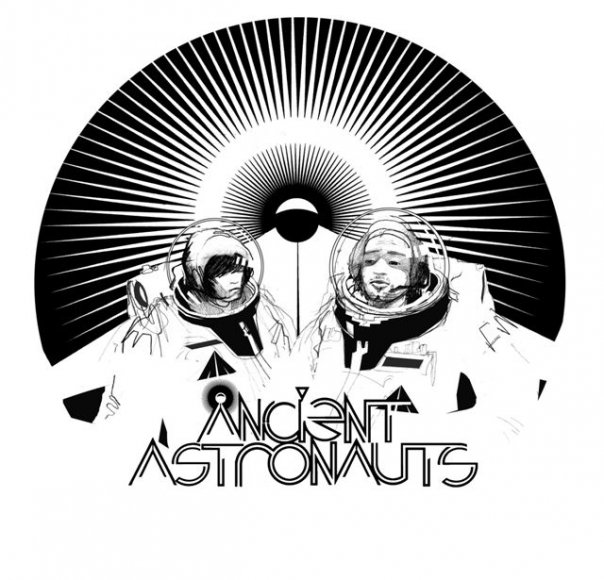Published: April 17, 2011
By: Summer Li
 The ancient Samarians and Mayans have almost nothing to do with modern electronic music. However, German producers Tom Dogu and Ingo Kabanjak embody a deep connection between two seemingly disparate worlds. The Cologne-based duo was first taken in by ancient astronaut theories through cheesy science fiction TV—“Chariots of the Gods?” and Erich Von Daniken. Soon, the pair adopted the dichotomous name, Ancient Astronauts, as a play on both past influences and future aspirations for their music. A musical anachronism, the pair fuses both elements of tribal drumming and instrumentation with the modern production techniques of electronic music and hip-hop.
The ancient Samarians and Mayans have almost nothing to do with modern electronic music. However, German producers Tom Dogu and Ingo Kabanjak embody a deep connection between two seemingly disparate worlds. The Cologne-based duo was first taken in by ancient astronaut theories through cheesy science fiction TV—“Chariots of the Gods?” and Erich Von Daniken. Soon, the pair adopted the dichotomous name, Ancient Astronauts, as a play on both past influences and future aspirations for their music. A musical anachronism, the pair fuses both elements of tribal drumming and instrumentation with the modern production techniques of electronic music and hip-hop.
Back in 1984, Dogu was a breakdancer, though not into hip-hop. In fact, for most of the eighties, Dogu was listening to “shitty pop.” It was not until 1988, when he heard Public Enemy for the first time, that he was fully enraptured by hip-hop culture, and subsequently funk and reggae. “Their music changed my life,” he says. Fortunately, he was located in a city with an already bustling hip-hop scene. “I’ve been going to concerts for more than 20 years now in Cologne and the area. One of the largest hip-hop distributers, Groove Attack Records—actually probably the biggest European label for hip-hop is based in Cologne. We went to a lot of parties and always got American and UK artists there.”
The singer Akua Naru, also based in Cologne, was one of such musicians the duo has met and also sings the deep and chilling vocals on their new album track “Last Night.” Many of the same MCs and artists featured on their first LP return for collaborations on their new album Into Bass and Time such as Phat Old Mamas, Entropik, Raashan Ahmad, and Azeem. Raashan and Azeem were both on the San Francisco-based label, Om Records, a longtime backer of the boys in Ancient Astronauts. “When we first heard these MCs, we were really impressed, and did remixes of them. Then we just asked Om Records to hook us up with them and see if they wanted to work on our tracks with us. We hadn’t met them personally before, but sent them our music anyway.”
Collaborations are a mutual process in the production room. “The guys from Entropik (UK), whom we had met through friends and who play the strings in ‘Peace in the East’… well we had them in mind when we created that track. We first decided that we wanted them in one or two tracks off the new album. We would start building a groove or bassline and rearrange our own material until there was enough space in the track for strings. From there we would title the track, send it to them, and they would do their own interpretation of it.” But in no way do the guys from Ancient Astronauts try to own or control production completely. “We don’t tell them what to do. We just give them our music and tell them, here’s the theme. They come up with all of their own lyrics and words when they hear the songs. Like Raashan, we’ll send him our music and ask him if he feels it. If he does, he’ll go for it.”
 Production itself is a hybrid of instrumentation and software. While everything is recorded on software, live instruments are what mainly comprise their sound. On tracks such as “Peace in the East” and “Calvert Street Rock,” that sound that you really can’t pinpoint, somewhere between a woodwind and an accordion, is actually the melodica. This outlandish instrument looks very much like how it sounds. “Some call it a children’s toy,” says Kabanjak, who plays all the melodica parts, along with many others, including the guitar. The melodica is a two to three octave keyboard with a free-reed, recorder-style body attached. Kabanjak would blow into the tube while pressing the keys to create that accordion sound popularized by the 70’s Kingston sound.
Production itself is a hybrid of instrumentation and software. While everything is recorded on software, live instruments are what mainly comprise their sound. On tracks such as “Peace in the East” and “Calvert Street Rock,” that sound that you really can’t pinpoint, somewhere between a woodwind and an accordion, is actually the melodica. This outlandish instrument looks very much like how it sounds. “Some call it a children’s toy,” says Kabanjak, who plays all the melodica parts, along with many others, including the guitar. The melodica is a two to three octave keyboard with a free-reed, recorder-style body attached. Kabanjak would blow into the tube while pressing the keys to create that accordion sound popularized by the 70’s Kingston sound. While worldly influences are more apparent on their new album, Dogu and Kabanjak are also keen on sticking to their roots. Sampling and turntablism (scratching added by Canada’s DJ Brace) are reoccurring techniques. “We think Ancient Astronauts should always keep a hip-hop vibe. We use a lot of samples, but we actually play these samples live. When people hear our music, they ask us what samples we’re using, but we’re actually playing these samples ourselves.” And in some cases, the duo even samples their own earlier releases such as cutting the chorus from “Oblivion” on their previous album to sample on their new track “Worldwide.”
Ultimately the theme of representing “love worldwide” drives not only the worldly sound of Ancient Astronauts, but also an overall message worth spreading. “Our biggest inspiration is the whole world. We listen to music from all over the world, we are not narrow-minded. There are so many different types of music out there, from African music, to reggae, to jazz. Although we do pick what we like,” the two explain. “Hip-hop and music in general has always been an international phenomenon to us. We always saw the whole world in terms of music. Music is everywhere. Worldwide!”
Ancient Astronauts - Worldwide













